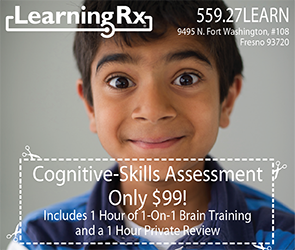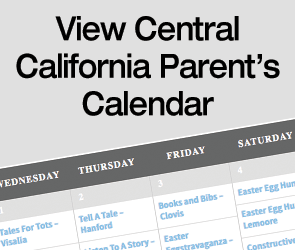Make the most of your child’s ages and stages

By Sandra Gordon
From crawling, walking and babbling to the angst and rebellion of the tween and teen years, children constantly go through a predictable set of developmental stages in four domains: physical, cognitive, emotional and social. “Along the way, any of these areas can be ahead or behind the others in their timing, then switch, which can be confusing for parents,” says Vivian Seltzer, Ph.D., a professor of human development and behavior. You can start out with a kid who is really smart and seemingly ahead of everyone else in school, for example, only to find out two years later that his classmates have caught up and they’re speeding ahead. Not to worry. It’s all just part of growing up. Still, “knowing where your child is at developmentally can help you understand and support him,” Dr. Seltzer says. Most kids don’t need a lot of help navigating the landscape, especially the older they get.
But it helps to be aware of what’s normal and what’s not so you can guide them along the way and step in if you need to. Use our guide to tune your radar and help your child make the most of every age and stage, from preschool through college.
Preschool:
When “me, me, me” becomes “we”
What’s happening now
From ages 2 to 5, kids make big leaps in all areas of development. At age 2, they’ll begin to develop their vocabulary as they associate sounds with objects (“brown cow”). By age 5, they’ll be able to string complete sentences together and use words in different contexts (“I saw a brown cow on my Grandma’s farm and at the zoo too.”) “Preschool is an environment in which kids they have the opportunity to use language in many different ways with others who are at the same developmental age,” says preschool teacher Jennifer Kurumada Chuang. But, overall, preschool helps young naturally-egocentric kids learn how to exist with others in a classroom environment. “They learn how take turns, follow directions, pick up after themselves, stand in line, sit in a circle, raise their hand, use their words to express themselves instead of physically acting out and talk when it’s appropriate,” Kurumada Chuang says. “If they master those social skills in preschool, they’re ready to learn in kindergarten.”
Success Rx
Read, read, read to your child. “Being read to is the single most consistent and reliable predictor of academic success later in life,” says Kurumada Chuang. She recommends reading to your child for 20 minutes every night at bedtime. While you’re at it, stop every so often and ask your child a question about the story before turning the page, such as: “Gosh, why do you think she was sad?” or “What do you think it going to happen next?” Making reading more interactive makes it more fun and helps build your child’s comprehension skills.
Practice sharing at home. From age 3 to 5, kids aren’t yet capable of grasping the concept of sharing, but you can help your preschooler practice by having her “take turns” with toys and catching her when she shares on her own. “Stating what she did and how it makes others feel, such as: ‘Thank you for sharing. It makes your sister feel good when you share your toast,’ helps her develop the empathy that true sharing requires,” says Marcy Guddemi, Ph.D., executive director of the Gesell Institute of Human Development in New Haven, Connecticut. You can also read your child books about sharing and discuss them.
Help your child learn to follow directions. At home, give simple commands, such as “Please help me pick up your toys and put them in the toy box.” Then, encourage your child to follow through by offering an incentive to do whatever it is you’re asking. Tell your child that he can play outside once he’s finished putting his toys away. An incentive helps him understand that following directions makes other fun activities possible. If he doesn’t follow your directions and, for example, put his toys away, calmly explain that he won’t be able to play with those toys for the rest of the day or go to the park. Keep it positive by focusing on how clean the playroom will look when you’re done. Then praise him when he’s successful. “You followed my directions so well. Thank you for helping me put your toys in the toy box like I asked you to! That was so helpful.”
Elementary School: Milestone mania
What’s happening now
From Kindergarten through the fifth grade, kids make major strides, from initially learning how to transition to school and being comfortable with a classroom routine to learning how to read (Kindergarten and 1st grade) to reading to learn (the 3rd grade and beyond) in all subject areas. Emotionally, they begin to develop their academic self-esteem based on feedback from you and their teachers. By the 4th and 5th grade, they’re moving from concrete to abstract thinking. “When a concrete thinker sees the Statute of Liberty, they see it as a lady with a torch. An abstract thinker also sees it as a symbol of freedom and democracy,” says Rebecca Branstetter, an educational and clinical psychologist. By the 5th grade, they’re also beginning to set goals, work independently, work better in groups, make more complex decisions and become organized with their school and homework.
Success Rx
Extend learning beyond school. Work activities into your child’s day that use concepts she’s learning at school; it helps reinforce them and connect what your child is learning to the real world. For example, let your second grader count change at the checkout and measure the ingredients while you’re baking cookies together (fractions). Have her tell time. Talk about numbers while you’re driving, such as how fast you’re going, the distance you’ll travel, and how long it will take to get there. Play board games together involving money, time, logic or vocabulary such as the family edition of Monopoly, Scrabble or Apples to Apples. On the weekends, consider family outings to museums and zoos to visit exhibits that coincide with school subjects. “If your child is learning about Egypt, take a trip to a local museum with an Egyptian exhibit,” says Branstetter. “It reinforces curiosity, sends the subtle message that school is important and shows your child that school and home are connected.”
Develop a homework habit. Make doing homework automatic by coming up with a routine that fits your child’s personality. Some kids like doing homework right after school. Others need to burn off steam by playing for half an hour (set a timer) before getting down to business. Whatever you choose, stick to the schedule you establish for your kids as much as possible. To minimize distractions, keep the TV off during homework time. For younger kids, begin each homework session by asking your child to explain what she’s supposed to do then gauge if she can do it alone of if she needs your help. If you’re not around when your child does his homework, let him know you’ll look at it when you get home and be sure to follow through. “Praise him when he completes him homework by emphasizing the process, such as “You worked really hard to learn your math facts” rather than the product “Good job on learning your math facts.” “Praising the process teaches persistence, which is a skill kids need for school success,” Branstetter says.
Middle School: Hormone havoc
What’s happening now
In middle school—the 6th through 8th grade, kids are starting to go through puberty and the physical changes can make them feel like they’re not in good control of their bodies. “It’s a very complicated time physically, socially and emotionally,” says Vicki Panaccione, a licensed psychologist and founder of the Better Parenting Institute (www.betterparentinginstitute.com). During this difficult age and stage, their sense of self is also developing. “There’s a lot of exclusion in middle school,” says Pacaccione. Cliques can provide a safe haven as kids try to figure themselves out.
Success Rx
Expect turmoil. The mood swings and over-reactions, such total hysteria over whether a boy or girl looked at your child or not in the hallway, are a normal part of this phase of development. “Don’t take it personally. Just understand that your child is going through a lot,” says Panaccione. Be supportive but don’t minimize the problem or try to fix it either. “Middle schoolers don’t want you to solve anything,” Panaccione says. Instead, use phrases like: “I’m sorry you feel that way” or “Gosh, that must have been embarrassing for you,” rather than “Just ignore it” or “Just get over it. It’s not a big deal.” It is to your child. Comments like that don’t help and can be harmful. “They can push your child away because she’ll feel like you just don’t get it,” she says.
Don’t be too concerned if your child starts to hang with the wrong crowd. “As kids develop and decide who they want to be, they also need to decide who they don’t want to be,” says Dr. Seltzer. They may try on various cliques, including one that’s not your favorite, to see what feels right. All kids have friends their parents don’t like. But kids are good self-barometers. “Don’t butt in unless you think their friends are dangerous,” Dr. Seltzer cautions.
Empathize academically too. In middle school, the work load gets more difficult because kids have to meet the demands of up to seven different teachers instead of one. “It’s a big challenge, but the best thing you can do is allow your child to vent without buying in,” says Dr. Panaccione. If your child complains that one of his teachers gives too much homework, for example, you might say, “Well, what do you think you might need to do, given that he gives lots of homework?” rather than “He’s only trying to teach you.” The idea is to help your child solve the problem, find his own way and keep the lines of communication open so your child will continue to feel comfortable talking to you about even bigger problems that might come his way.
High School: The who-am-I? years
What’s happening now
In middle school, kids are growing into themselves. By high school, they’re forging their identity academically, socially, morally, sexually and spiritually while trying to figure out who they are apart from you. “High schoolers question everything and may even rebel against your opinions and beliefs,” says Panaccione. If you’re a Democrat, your child might say he’s a Republican. If you’re a meat-and-potatoes family, she’ll become a Vegan. You get the idea.
Success Rx
Keep talking. Allow your child to question your opinions and values and express himself. Ask questions such as, “Oh, why do you think so?” rather than lecturing or yelling. “It’s a great time to find out who your kids really are,” Panaccione says.
Take note of dramatic changes. It’s normal for high schoolers to be just as moody as middle schoolers. But if your teen shows a drastic change in personality, behavior, a significant drop in grades, study habits or attitude, or a dramatic shift in appearance, dress or grooming, or interests, goals or activities, know that something’s up. “Talk to your teen about your concerns,” says Panaccione—not with “What’s wrong?” but “I’m concerned that you’re spending time in bed when you used to be out with your friends.” Then listen to what your child has to say. If the behaviors are a sign of rebelling against a lack of freedom or privilege, be open to discussing and compromising. If you’re concerned that your child may be suffering from depression or another mental health disorder, seek professional help. “Your child’s primary care provider or the school guidance counselor is a good resource for getting referrals to qualified child/teen psychologists in your area,” Panaccione says.
Help your child deal with college pressure. By the 11th grade, college pressure comes on strong. Start talking college now only if your child is ready to. “Some kids are very focused. But most have no idea what they want to do or major in,” Panaccione says. To reduce anxiety, Panaccione tells her high school patients that they don’t have to know what they want to do going into college. That’s where they’ll figure it out, which is something you could say at home, too. Also, listen to your child’s wishes for college rather than pushing your agenda. “To be successful, kids should end up going to a college that’s right for them,” she says.
College: Freedom!
What’s happening now: College is the first time many kids are functioning independently without their parents or the structure of a family. “A big issue that comes up is self-regulation,” says Joshua Kellman, M.D., a child and adolescent psychiatrist at the University of Chicago. Kids who don’t have strong self-regulatory skills can get into trouble with alcohol, drugs, food and promiscuity, because they’re persuasive and available on college campuses. They might also cut classes and not study, too.
Success Rx
Work on self-regulation. If your child isn’t in college yet, try to help him be more independent. “No matter how old your kids are, challenge them to learn new skills but not so much that they feel overwhelmed,” Dr. Kellman says. In high school, for example, let them take charge of their homework, be in charge of their own money and other responsibilities such as doing their own laundry, keeping their room clean, and making meals. Self-regulation comes with lots of practice. If your child is already in college and having problems with self-regulation, suggest psychotherapy to help her figure out how to structure herself and organize her time.
Foster your child’s burgeoning autonomy. Most freshman show up at college thinking “I live at home and at this moment, I’m at college.” But by the time they’re seniors and ready to graduate, it’s “I live here and sometimes I visit home.” Still, joining the real world can be terrifying. “Kids don’t always want to be autonomous even though they might act like they do,” says Dr. Kellman. To boost their confidence, it’s helpful to say things like, “Well, you’ll always be my son or daughter.” “Kids feel reassured when they know ‘the nest’ will always be there,” Dr. Kellman says.
Don’t panic if your child has picked a seemingly dead-end major. College is about conceptionalizing the future and figuring out what you want to be when you grow up. If your child has picked a major you don’t think will ever lead to making money, go ahead and articulate your concerns. “But you can’t do much more than that without trying to control your child and undermine her autonomous development,” Dr. Kellman says. That could cause her to rebel and your efforts to backfire. “A rebelling kid isn’t owning his future.” Your best bet? “Embrace your child’s autonomy and have confidence that she’ll figure it out,” he says.
Central California Parent is the #1 FREE parenting resource for Central Valley families.
Stay connected with Central California Parent throughout the month!
• Like Us on Facebook
• Follow Us on Instagram
• Follow Us on Pinterest
• Follow Us on Twitter
• Subscribe For our Family E-Newsletter
• Read Our Digital Edition
• Enter for our FREE Giveaways








